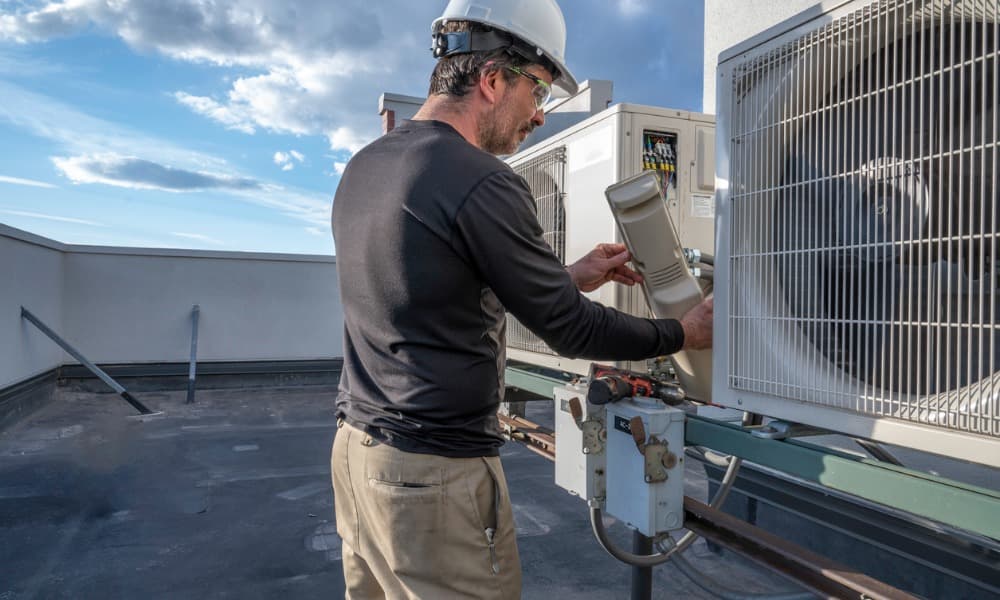The comfort of our homes and workplaces is significantly reliant on Heating, Ventilation, and Air Conditioning (HVAC) systems. Regular maintenance is pivotal in ensuring these systems operate efficiently. However, determining the frequency of HVAC maintenance can be a conundrum. Striking the right balance between over-maintenance and neglect is crucial. Let’s delve into the factors influencing the optimal frequency of HVAC maintenance.
Understanding HVAC Systems
HVAC systems are intricate assemblies comprising various components like filters, coils, compressors, and thermostats. Each part plays a vital role in regulating temperature, air quality, and humidity. Over time, these components accumulate dirt, dust, and wear, affecting their efficiency and longevity.
Factors Influencing Maintenance Frequency
Several factors dictate the frequency of HVAC maintenance. The type of system, usage intensity, environmental conditions, and manufacturer’s recommendations all play pivotal roles. Residential systems might require different maintenance intervals compared to commercial ones due to varying usage patterns and demands.
Manufacturer’s Guidelines
Manufacturers typically provide guidelines regarding maintenance schedules for their HVAC systems. Adhering to these recommendations helps maintain warranties and ensures optimal performance. These guidelines often suggest bi-annual or annual check-ups, but specific systems might require more frequent attention.
Usage Patterns
The frequency of HVAC usage directly impacts maintenance needs. Systems operating round the clock, such as in commercial spaces or regions with extreme climates, demand more frequent inspections and tune-ups compared to occasional residential use.
Environmental Factors
Environmental elements like dust, pollen, humidity, and air quality influence the maintenance frequency. Areas with high pollution levels or excessive dust might necessitate more frequent filter changes and cleanings to sustain efficient operation.
Benefits of Regular Maintenance
Regular HVAC maintenance offers numerous advantages. It enhances system efficiency, reduces energy consumption, prolongs the system’s lifespan, and ensures consistent indoor air quality. Neglecting maintenance could lead to higher energy bills, frequent breakdowns, and compromised air quality.
Determining Maintenance Frequency
Customizing the maintenance schedule to suit specific needs is essential. Consulting HVAC professionals can help assess individual requirements based on system type, usage patterns, and environmental factors. They can recommend an appropriate maintenance frequency tailored to optimize system performance.
Signs that Maintenance is Due
Recognizing signs indicating the need for maintenance is crucial. Odd noises, inconsistent temperature regulation, increased energy bills, or poor air quality are red flags demanding immediate attention. Timely intervention can prevent more extensive issues and costly repairs.
DIY Maintenance vs. Professional Services
While some maintenance tasks like filter replacements can be performed by homeowners, comprehensive inspections and tune-ups should be handled by certified HVAC professionals. Professional servicing ensures thorough checks and timely identification of potential issues, preventing major breakdowns.
Evolving Technology and Adaptive Maintenance
Advancements in HVAC technology continue to influence maintenance practices. Modern systems often come equipped with self-diagnostic features and improved efficiency, altering the landscape of maintenance needs. These developments might allow for longer intervals between professional check-ups while emphasizing the importance of timely response to system-generated alerts or notifications. As technology evolves, maintenance schedules may become more adaptive, aligning with the system’s self-monitoring capabilities.
Economic Considerations and Long-Term Benefits
Balancing the frequency of HVAC maintenance also involves considering the economic aspect. While regular maintenance incurs costs, it proves to be a worthwhile investment in the long run. Preventive maintenance reduces the likelihood of major breakdowns, thereby minimizing repair expenses. Moreover, by ensuring optimal efficiency, it contributes to lower energy bills, offering substantial savings over time. The upfront costs of maintenance pale in comparison to the potential expenses associated with neglect and system failures.
Maintaining a delicate equilibrium between the frequency of HVAC maintenance and its associated benefits is a task requiring a tailored approach. By acknowledging the interplay of various factors and embracing technological advancements, individuals and businesses can navigate this balance to ensure the continued reliability and efficiency of their HVAC systems. Looking for an expert in HVAC maintenance? Look no further than Costa Mechanical. They bring our best-in-class services to South Western Ontario.

